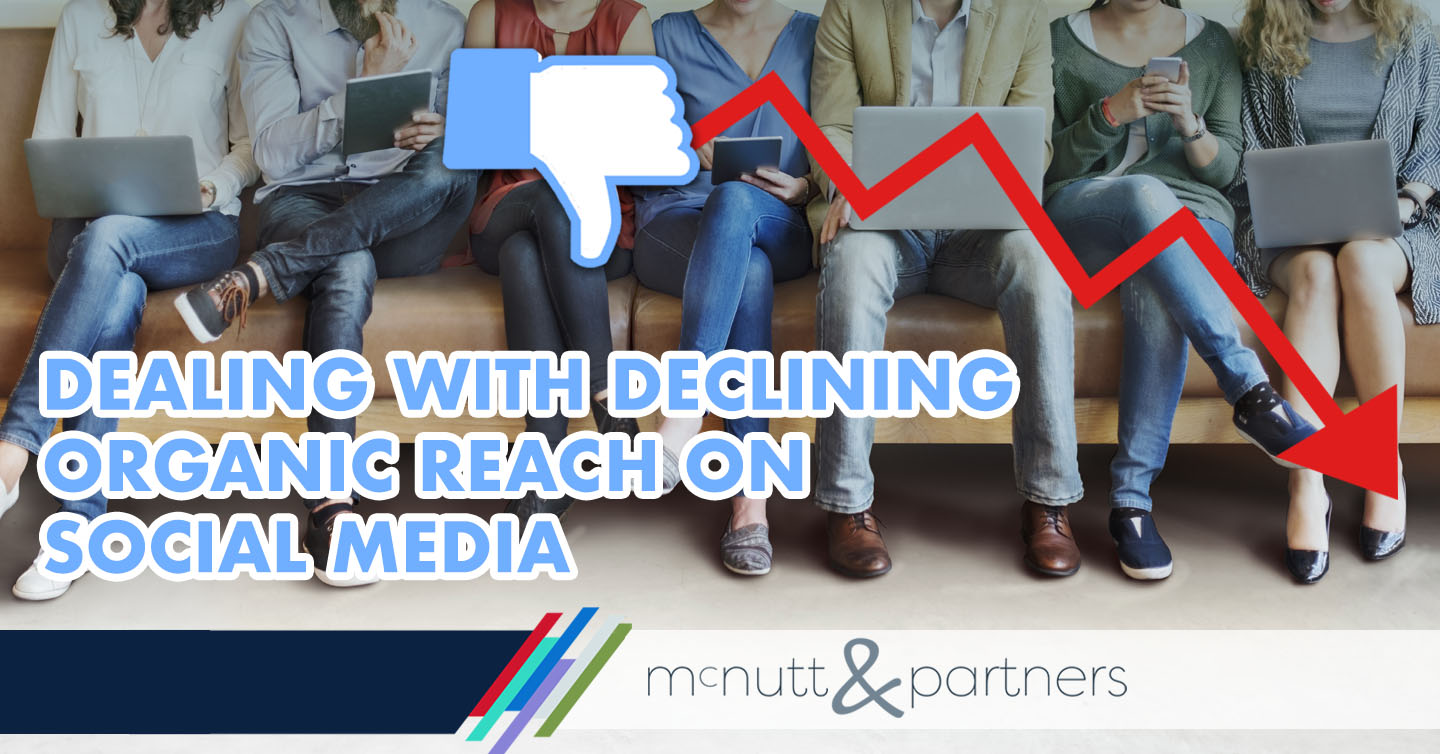We like to think of social media as a “free” form of advertising, and it is—to an extent. Recent changes to the way content is disseminated to social media users—specifically on Facebook—has made it more challenging for marketers and business pages to get their posts into the spotlight. Declining organic reach on social media is not something to be taken lightly; fortunately, however, there are ways to combat this marketing disadvantage to still have your content seen by your intended audiences.
What is organic reach?
You may have heard the term thrown around here and there, but what exactly does it mean? Organic reach is how well your posts perform without any paid support. Putting money behind your posts gets them seen by a larger audience, but organic reach is how far they extend without money—left to the whim of Facebook’s (or any social media platform’s) algorithm.
Why is it declining?
In early 2018, Facebook announced that it would begin prioritizing content from friends and family in users’ news feeds above brand content. This means that the posts that now rank the highest on Facebook are those that promote person-to-person interactions. We’re focusing on Facebook here, but organic reach has also gradually declined on other platforms like Twitter and Instagram. Here’s a look at how organic reach has declined over the years on Facebook:
2007-2012: 16 percent of Facebook “fans,” (followers of “Fan Pages,” which launched in 2007) were seeing these Fan Page posts in their news feeds on average.
2014: That number drops to 6.5 percent.
2016: Facebook adjusts its News Feed algorithm again, and organic reach is lower than 2 percent in some cases.
2018: Facebook revamps its News Feed entirely following the Cambridge Analytica data misuse incident. Organic reach declines even further as Facebook strives to avoid exploitation of user privacy.
So what content is being prioritized?
Don’t be mistaken—content from business pages has not been eliminated from personal users’ News Feeds entirely. However, the factors that make a post rank may or may not apply to marketing messaging. Facebook is prioritizing content:
- That is shared via Facebook Messenger.
- That is liked or commented on.
- That receives multiple likes or comments.
- That promotes “meaningful interactions” between users (i.e., shares and comments).
What can I do?
Dealing with declining organic reach on social media is now all about making sure the content you are pushing out is the type that will promote the “meaningful interactions” mentioned above. Here’s what you should be doing:
- Paying to promote content. With organic reach now next to nil, paying to promote your social content is pretty much a must. Pay attention to the audience you are targeting with paid content. You can adjust factors like location, age, gender, interests and more, so make sure the audience you are appealing to is relevant.
- Posting more meaningful content less frequently. Rather than posting constantly to see what sticks, you’ll fare better to post quality content on a more limited basis. Again, think about your audience and what type of content will promote those meaningful interactions mentioned earlier in this post.
- Encouraging fans to adjust their notification settings. Fans of your page can actually tell Facebook, “I DO want to see this page’s content in my New Feed.” To do this, they can go to your page, click “Following” in the top navigation bar and select “See First” in their news feeds rather than “Default.” Fans can also go to the side navigation bar and click “Pages,” to see content from all pages they have liked.
- Video, video video. According to WordStream, social video generates 1,200 percent more shares than text and images combined. Videos have a higher engagement rate, which means good news for dealing with declining organic reach on social media.
- Experimenting with Stories. The “Stories” features on Facebook and Instagram allow you to bypass the algorithms that put you at a disadvantage. With stories, content is available to be seen for 24 hours from the time it was posted, making it ideal for more temporary, timely engagement.
- Customizing content for specific platforms. The same copy and graphics that get a stellar response on Instagram may not shine as brightly on Twitter, for example. Some platforms like loads of hashtags (Instagram), while others prefer quick, punchy copy (Twitter). Optimize your content for the social network to which you are posting.
Declining organic reach on social media does not mean that businesses can no longer use social media as a marketing channel; it just means that the manner in which they go about it may have to be adjusted. If you need help improving your reach on social media, the McNutt & Partners team can help. Call us today at 334-521-1010, or visit our contact page.

